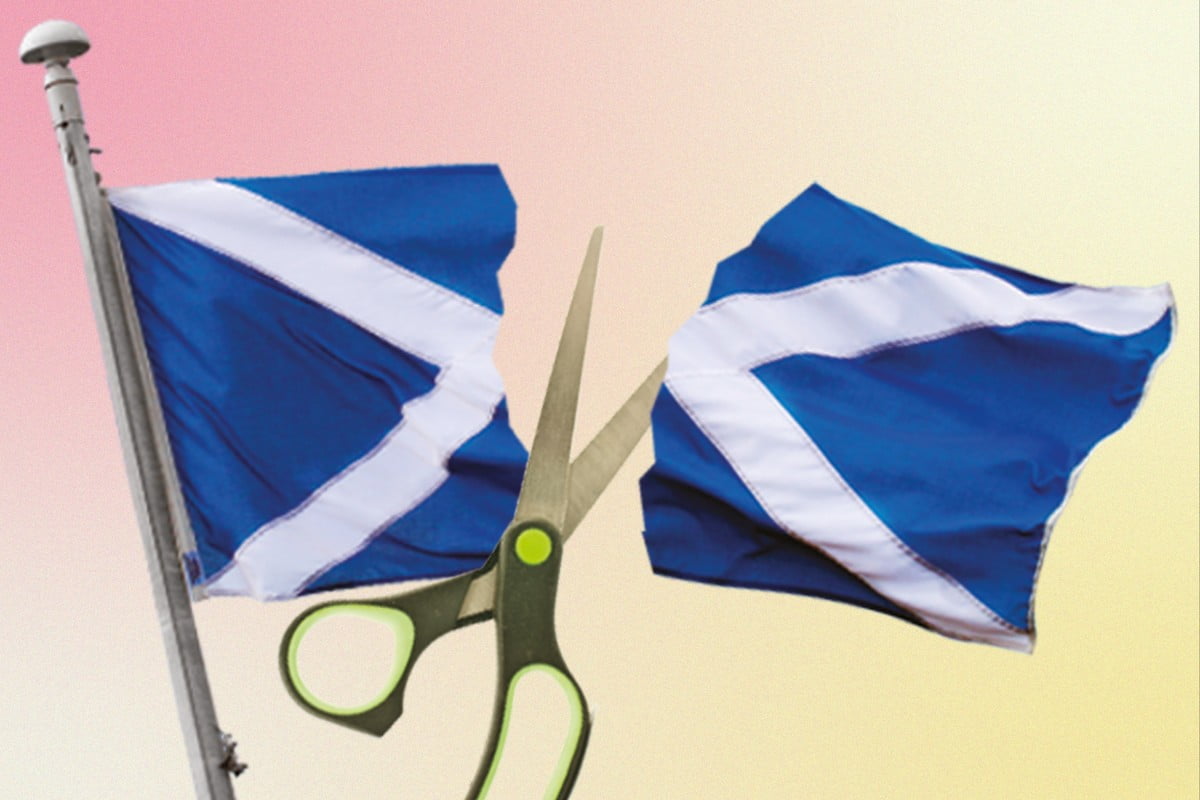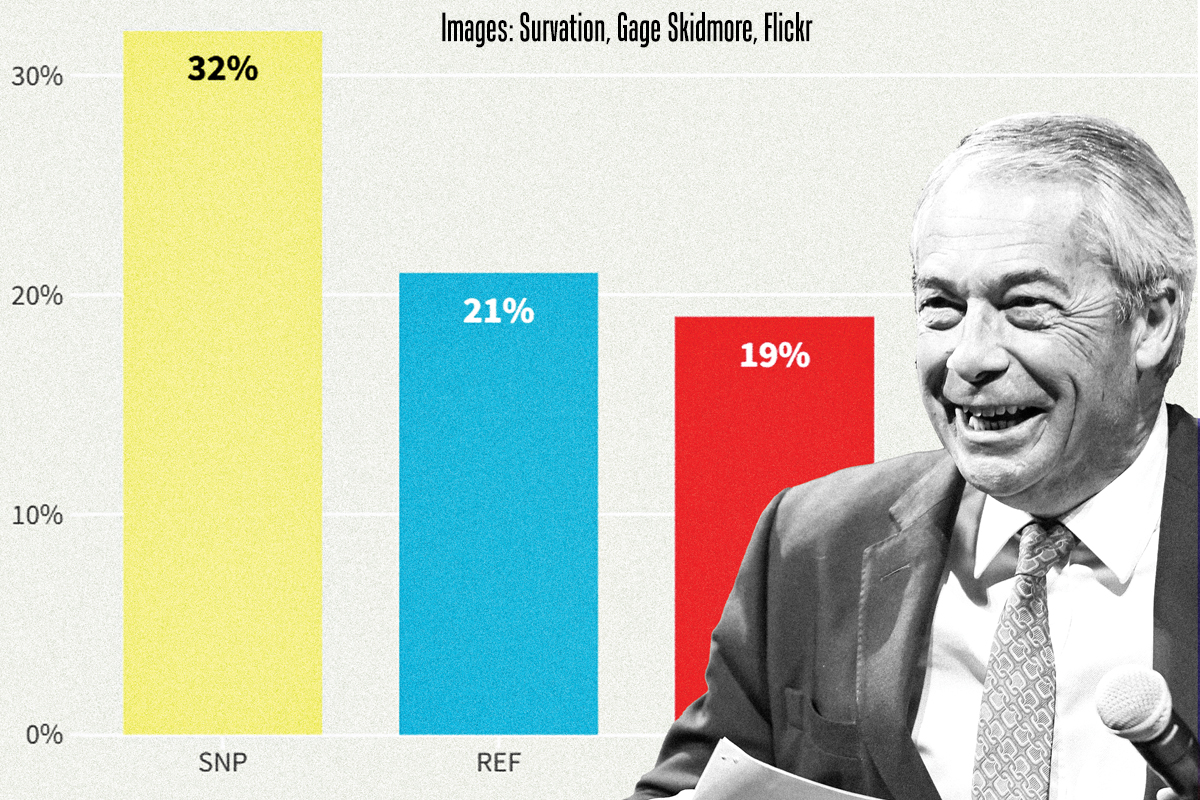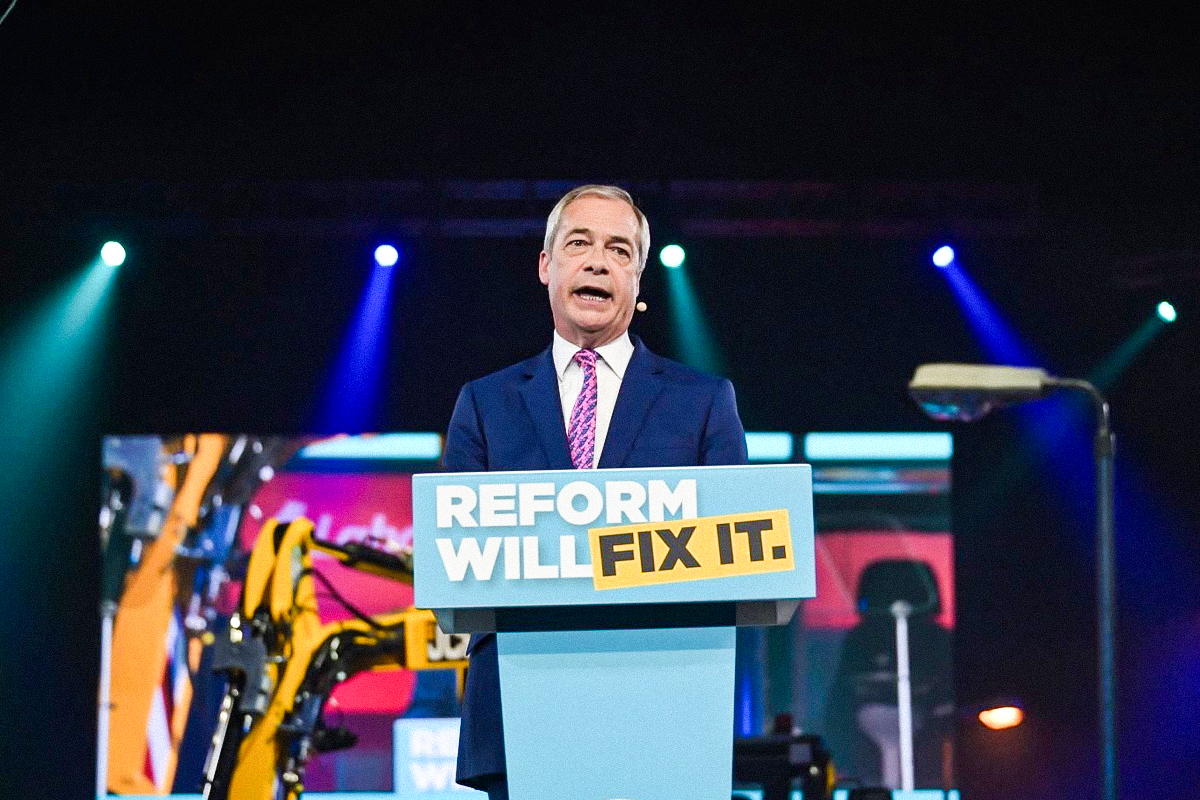A recent poll has predicted that Reform UK could win 21 seats in the Scottish parliamentary elections in May 2026. While the SNP are still predicted to win around 58 seats, this would see Reform become the main opposition – ahead of Labour on 18 seats and the Tories on 13.
This would be a massive shock to the Scottish political system. None of Nigel Farage’s outfits – neither UKIP, the Brexit Party, nor Reform – has ever won a single seat in the history of the Scottish parliament, despite it using a proportional system in elections.
No answers
To understand this development, we need to understand why ordinary voters are backing Reform.
In the 2024 general election, workers across Britain voted for Labour in order to kick out the Tories and end austerity. But now they are seeing Starmer and his government carry out the exact same policies as their Tory predecessors.
In the gaping absence of any alternative on the left, a layer of workers are turning to Farage’s Reform, in the hope of something different.
In the past 10 years, Reform and its forerunners have struggled to do well in Scotland, because there has been another outlet for anti-establishment sentiments in society: the independence movement.
The electrifying mood around the 2014 campaign for Scottish independence reflected the desire amongst workers and youth for a struggle against the hated Westminster establishment and the austerity that a decrepit British capitalism demands.
Just as with their class brothers and sisters on the other side of the border, Scottish workers were ready to fight for a different kind of society. And the SNP were trusted to deliver this through independence.
Whenever push came to shove, however, the SNP leaders backed down, seeking to play the part of responsible statesmen.
Finally, in 2022, they meekly accepted the ruling of the UK Supreme Court – a pertinent symbol of the very establishment that they used to denounce as rotten and oppose – over the possibility of a second referendum.
Independence

Fast forward to today, and it is clear that the SNP offers no way forward for the movement – other than sitting around and hoping that a referendum will be graciously bestowed upon the people of Scotland from Westminster.
Polling suggests that most Scottish people still support independence: 56 percent according to The National, rising to 65 percent amongst the youth. But this is not being expressed in terms of active mobilisation or backing for the SNP.
In the past, when it came to the size of its membership relative to the population, the SNP was only beaten by the Chinese Communist Party. Now, by contrast, the party’s leaders despair about a lack of turnout amongst their own base – not just on the campaign trail, but in the polling booth.
Instead, there has been a rise in so-called ‘Indy-abstainers’: those who support independence, but who have lost all hope in the SNP to deliver this; and who therefore will choose to stay at home on election day.
At the same time, it is material and socio-economic issues, ahead of the question of independence, that primarily occupy the minds of ordinary workers and youth in Scotland at the present time.
Regarding next year’s Holyrood elections, for example, a recent YouGov poll from March showed that the top priorities for Scottish voters are far and away the economy, the NHS, and education.
Yet the SNP has no solution to any of the crises in these areas either, because they are not willing to break with the capitalist system that is behind them.
Cuts and crises
This same survey revealed that support for politicians as a whole is at an all-time low in Scotland. No Scottish or British party or political figure manages to scrape together a net-positive favourability, including the SNP.
This poll offers a damning indictment of First Minister John Swinney’s Holyrood government. When asked if they trusted the SNP to look after Scotland’s education system, 60 percent of respondents said they did not. Similar questions regarding the NHS and the economy saw results in the high 50s – only marginally better than Starmer’s hated Labour Party.
This is no surprise. In relation to the economy, the SNP have cut local authorities to the bone, whilst hiking council taxes. Residents in SNP-independent-led Angus council, for example, saw a tax rise of 11 percent this year.
The NHS in Scotland, meanwhile, is in crisis at all levels: from corruption scandals to the tune of £6 million; to the collapse of student welfare and bursaries in nursing and midwifery.
Many in Scotland will remember Swinney, in particular, for his education blunder in 2020, over the Scottish Qualifications Authority’s blatant discrimination against working-class kids.
Now, the sector is facing a crushing round of cuts to learning support staff, leaving classrooms packed and chaotic, with the most vulnerable children struggling to cope. This flies in the face of years of SNP landmark promises to close the attainment gap in Scottish schools.
Austerity

Since their devastating result in the last general election, the SNP leaders have made a show of being against Labour’s austerity: correctly pointing out the hypocrisy of Starmer and his Scottish lapdog, Anas Sarwar, when it comes to broken promises about offering something different to the Tories.
The SNP released a Scottish budget that reversed the two-child benefit cap north of the border, for example, among other headline funding boosts.
Yet the party’s tops expect Scottish workers to be grateful for a crisis-ridden NHS funded just 2 percent better than in England, or for a child poverty rate that is only 8 percent less than the rest of the UK. Britain is one of the richest counties in the world. Not a single child should live in poverty!
In any case, in reality, most of these funding boosts are paid for by sneaking austerity in the backdoor with local authority cuts.
‘Lesser evil’
The electoral strategy of the SNP is clear: tinker with the budget here and there; try to appear more anti-austerity than Labour (not a difficult feat, by any means); and attempt to make the upcoming contest all about keeping out Reform.
In April, for example, the SNP leaders organised an anti-Reform summit, where they welcomed with open arms a whole host of establishment figures. This included representatives from the Tories, Starmer’s Labour, Police Scotland, and the bourgeois press: the very people they stood in opposition to in 2014.
This represents the easy option for the SNP. It doesn’t require them to do anything, deliver on anything, or – crucially – spend any money. It just requires them to present themselves as the so-called ‘lesser-evil’ option.
The SNP may also be looking to Canada and Australia, where unpopular liberal parties have recently won elections by positioning themselves as the supposed ‘lesser evil’, in contrast to right-wing populists.
This approach may get them back into parliament in the short term. But in the long term, it only adds to the populists’ appeal and anti-establishment credentials – as the re-election of Donald Trump shows.
Broken status quo

The SNP will almost certainly win the next Holyrood elections. But they will hobble over the finish line, gasping for air.
As with Starmer’s victory in the 2024 general election, if the SNP wins in next year’s Scottish elections, it will be a case of voters holding their noses and putting a cross next to a thoroughly establishment party, simply because of their sheer hatred towards the opposition.
The SNP’s years in power, defending a broken status quo, have tarnished their anti-establishment image, and left behind a complete political vacuum in Scotland – as in the rest of Britain – that Farage and Reform aim to fill.
For now, in Scotland, Reform is still mainly gaining from the continued decline of the Tory Party and discrediting of Labour under Keir Starmer. To some extent, their association with Unionism is limiting their appeal more broadly.
It should be noted, however, that Farage and co. have attempted to avoid taking a position on independence. And they have distanced themselves from more extreme Unionist elements, such as Craig Campbell, Reform UK’s former Scotland organiser.
In other words, Farage does not want to confine himself to the Unionist vote in Scotland. As in areas in England and Wales once considered to be Labour heartlands, Reform is also looking to win over ex-SNP voters on the basis of anti-establishment rhetoric.
Socialist solution
Reform will not be stopped by an SNP grand coalition of establishment stooges, nor by moralistic appeals to vote for the ‘lesser evil’.
Nigel Farage and his gang are undoubtedly reactionary demagogues and charlatans, who offer no genuine alternative to workers and youth. Nevertheless, they are gaining traction everywhere because they seem to represent something different.
As in the rest of Britain, Scottish workers and youth are looking for real answers to the issues plaguing their lives: crumbling public services, abysmal living standards, and soaring prices.
The SNP have proven themselves incapable of providing any real solutions to these problems. Workers are right to have no faith in them – or in any of the crooks, liars, racists, and warmongers in Westminster.






